Youth-led climate change lawsuits are increasing across the country
A case in Montana is set to go to trial in early 2023.
Ava Lazar made her first climate documentary at age 11.
"When I was little, my older sister was very concerned about climate change, and I didn't really know what it was,” said Lazar. “But she was so worried and so afraid and had so much anxiety that transferred over to me and I started worrying about it."
Six years after making that film, Lazar is now part of a group suing the state of Virginia for its alleged part in causing the nation's climate crisis. The case is just one in a series of lawsuits nationwide where youth are going to the courts to fight climate change.
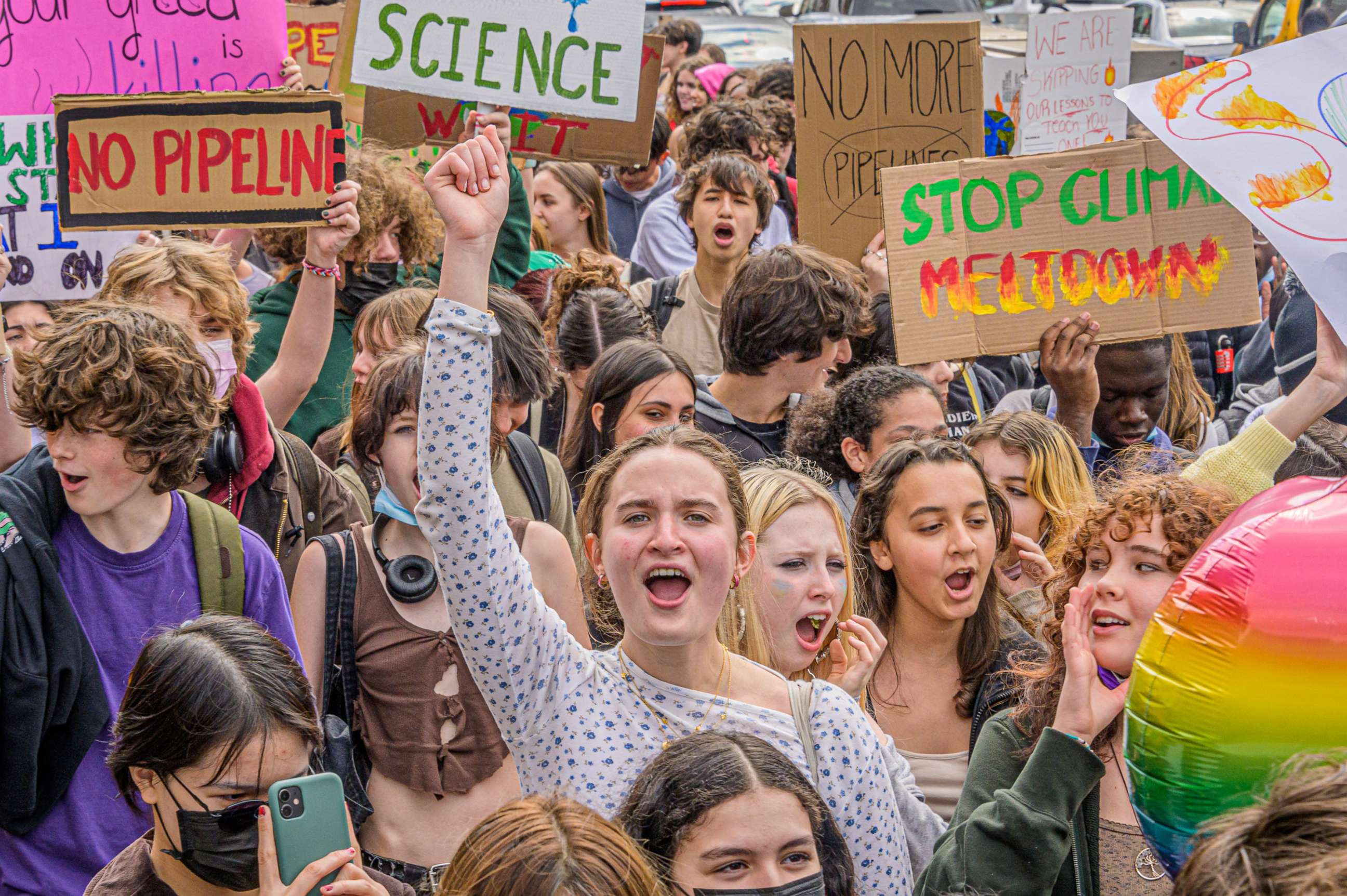
"A lot of us are under 18. I'm only 17 years old. I don't really have a voice except to through the court," said Ava. "Just the realization that, oh, it's possible for me to sue the Commonwealth of Virginia. And not only that, but it's happening in other states too was really reassuring."
While the Virginia case, filed in February, is in its infancy, others are beginning to break through the legal armor. Officials in the Held v. State of Montana lawsuit have a trial set to start on Feb. 6, 2023, the first case of its kind to receive a court date in the United States. This comes after the state of Montana had its motion to dismiss the case rejected by a district court judge.
In Montana, youth claim that state lawmakers have consistently prioritized fossil fuel infrastructure and profits to the detriment of their future. They argue that the state's actions have violated their constitutional right to a healthy and safe environment.
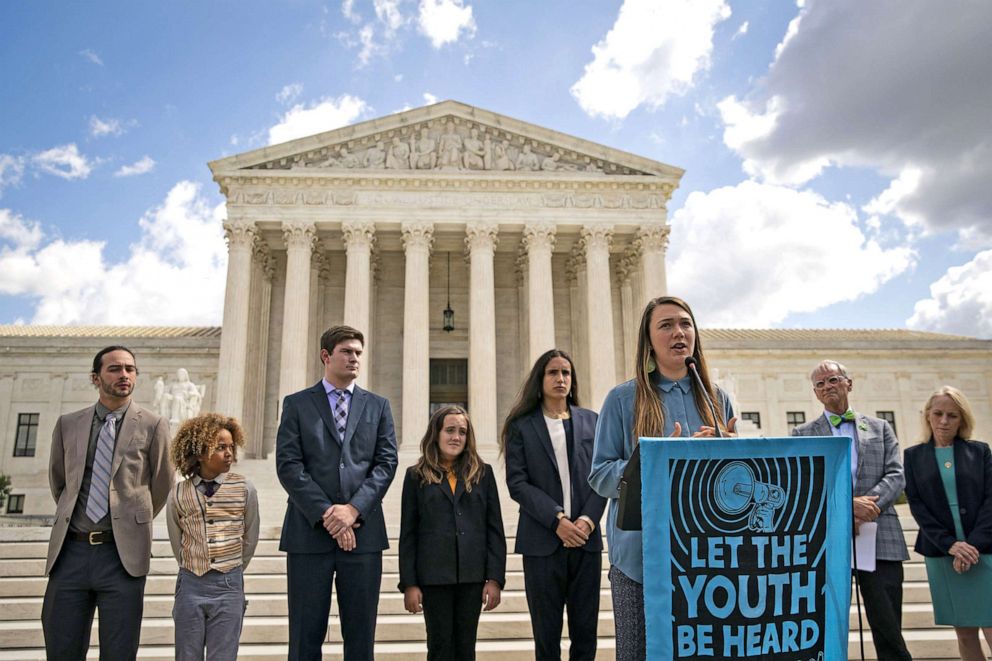
"As a parent, you know, having our kids basically fix what we have screwed up, in the true way that it can happen is a real point of pride for us,” said Sarah Busse, the parent of two Montana youth plaintiffs. “But also a point of like, we messed up, so they're fixing it?"
Nationwide, youth activists say they see the dire consequences of climate change and know that waiting for government action isn't good enough.
"Youth often feel obligated to do this because of the pure fact that we are young and we need this protection," said Grace Gibson-Snyder, an 18-year-old plaintiff in the Montana case.
Growing up in Missoula, Montana, Gibson-Snyder developed a connection to the environment that inspired her to get involved.
Lander and Badge Busse, brothers from Kalispell, Montana, say they have already experienced the consequences of climate change. They've had to stay inside at school due to wildfire smoke and seen their favorite hobbies, like skiing, change right before their eyes.
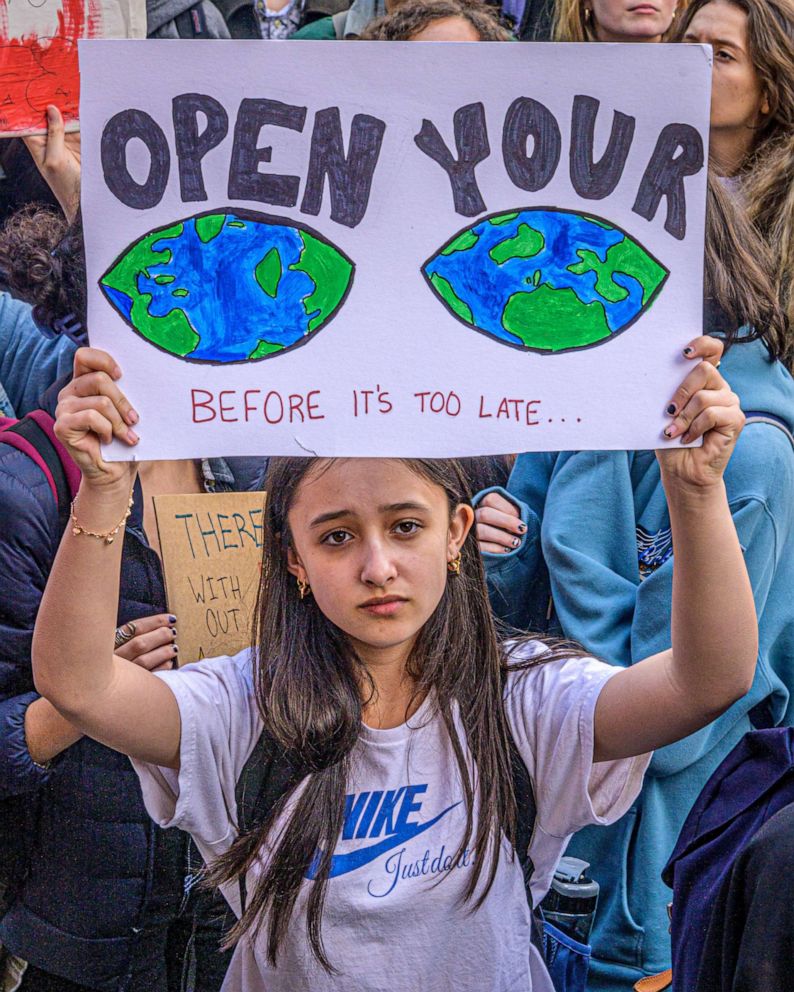
"I was sitting on the chairlift with my coach and we were talking about how when he has his kids, or when I have my kids, they're not going to be able to ski on like actual snow … which kind of broke my heart because I love skiing," said 14-year-old Badge Busse.
He added, "I would like to share it with my kids and their kids. I feel like that's not gonna happen."
As plaintiffs in the Montana case, they hope to be a part of a significant push nationwide toward legal remedies, regardless of the outcome of their case.
"We're not expecting to fix all of Montana's pollution issues immediately or anything like that. But we are definitely hoping to start a catalyst for hopefully these things," said Lander Busse.
With two youth cases already filed this year and two more expected in the summer, the movement is gaining steam.
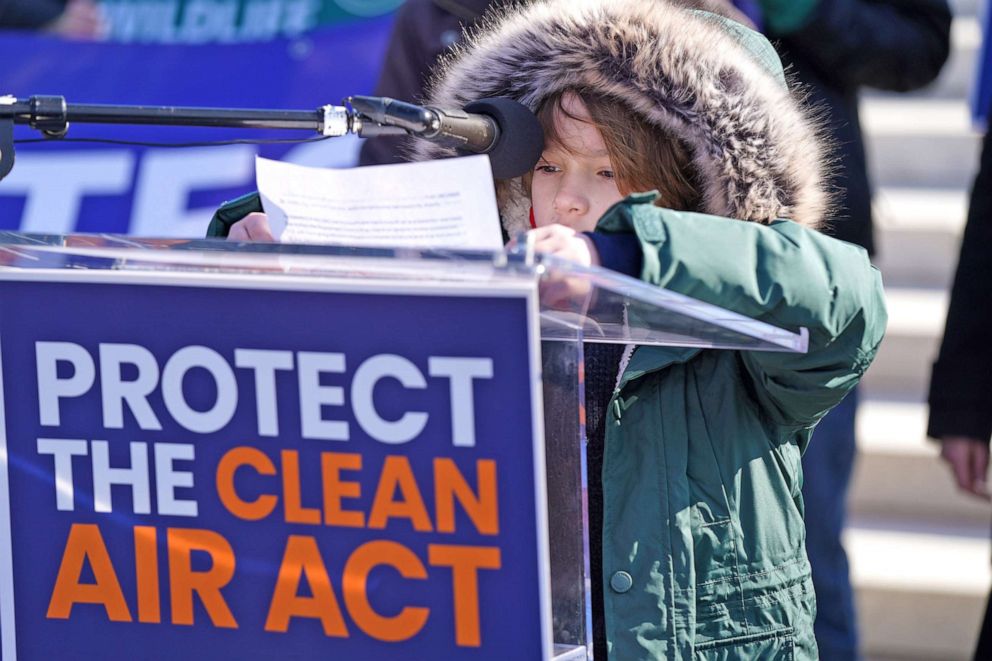
Our Children's Trust, the Oregon-based firm responsible for filing many of these cases, has an additional lawsuit ongoing in Utah as well as a federal case, Juliana v. United States.
The Juliana case was dismissed by a federal court, which said the remedy the plaintiffs sought was beyond the scope of the law cited, adding that the plaintiffs’ case "must be made to the political branches or to the electorate at large." In the aftermath of that ruling, the firm has filed an amended complaint and hopes to receive a trial in the case later this year or early next. Achieving that could be vital in its battle to start turning symbolic victories into legal ones.
"I think all of these cases are winnable if we can get to trial. And it's one reason why I'm really excited about our Montana state case," said Julia Olson, the executive director and chief legal counsel at Our Children's Trust.
The Montana state constitution states explicitly that "the state and each person shall maintain and improve a clean and healthful environment in Montana for present and future generations," a clause that the plaintiffs believe gives them the key to unlocking a legal victory.
Whether or not that will be attained waits to be seen. In its motion to dismiss, the state of Montana argued that the injuries the plaintiffs were claiming were "not caused by the statutes they seek to invalidate."
"These lawsuits have been very successful in bringing public attention to the climate crisis, and in obtaining court decisions affirming the nature of the problem. So far they haven't led to binding orders that compel action. Perhaps the Montana case will be the first," said Michael Gerrard, the director of the Sabin Center for Climate Change Law at Columbia Law School.
Young Americans looking to pursue these lawsuits often get in touch with Our Children’s Trust through a network of youth environmental organizations. At that point, the two sides have a conversation about whether or not the individual would be a good fit to join a case.
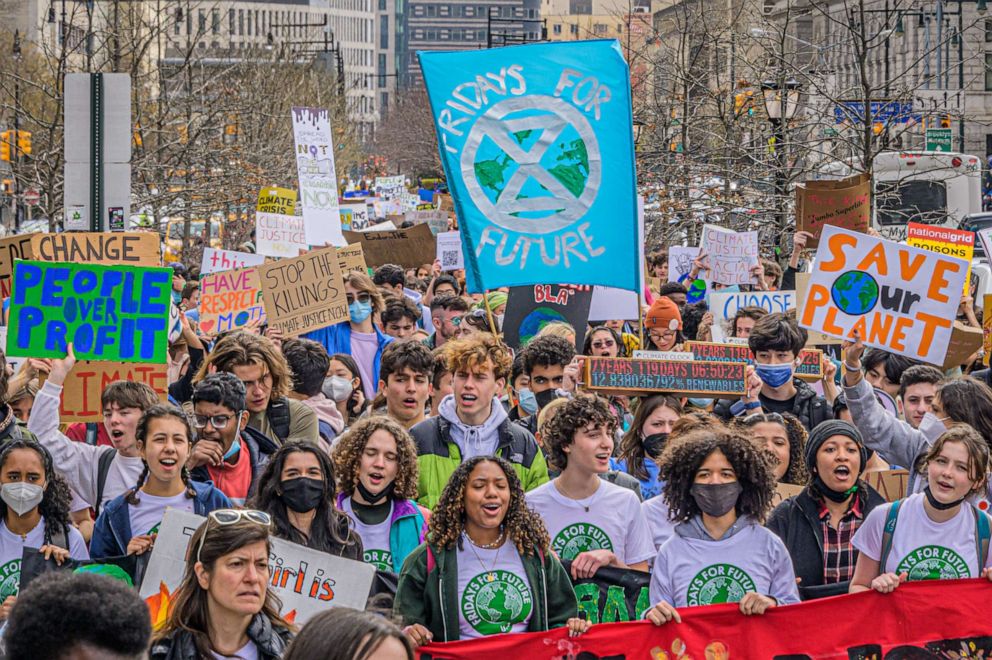
Our Children's Trust and the youth plaintiffs have teamed up to argue that other state constitutions, and that of the United States, provide the legal backing they need to win cases across the country. Until they get their day in court, it's a matter of showing others who aren't old enough to vote that they shouldn't let that stop them from having their voices heard.
Lander Busse doesn't see anything unique about who he is and what he and his brother have become a part of: "We're just some kids from northwest Montana who wanted to do something and got given an opportunity. That [other kids] should be able to make a difference as well."
The Montana Department of Natural Resources and Conservation, one of the defendants in the Montana case, said it would not comment on ongoing litigation when contacted by ABC News. In Virginia, the defendants pleaded "sovereign Immunity," which shields states from liability for alleged wrongdoing. The Virginia Department of Environmental Quality declined to comment on the case.
All other defendants from the Montana and Virginia cases did not return ABC News' request for comment.




